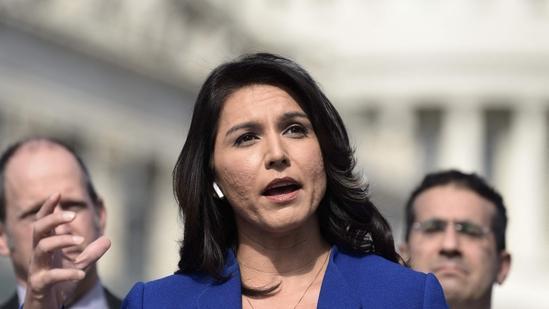
UK’s Demand for Apple Data Violates Americans’ Privacy: Gabbard
In a recent development that has raised concerns over privacy and intelligence sharing, US Director of National Intelligence Tulsi Gabbard has criticized the UK’s reported demand to Apple to provide backdoor access to any data stored in the cloud. Gabbard has termed this demand as “a clear and egregious violation of Americans’ privacy” and has asked US intelligence agencies to study the issue further.
The demand by the UK government has sparked widespread criticism, with many arguing that it is a violation of privacy and an overreach by the government. The issue has also raised concerns over the US-UK intelligence sharing relationships under President Donald Trump.
According to reports, the UK government has asked Apple to provide access to any data stored in the cloud, including emails, messages, and other personal information. This demand has been met with strong resistance by Apple, which has refused to comply, citing concerns over user privacy.
Gabbard’s criticism of the UK’s demand is not surprising, given the US government’s long-standing commitment to protecting individual privacy. The US has a robust system of laws and regulations in place to protect the privacy of its citizens, and any demand that compromises this system would be seen as a violation of those rights.
The issue is not just about the UK’s demand, but also about the broader implications of intelligence sharing between countries. The US and the UK have a long history of cooperating on intelligence matters, but this cooperation has been criticized by some as being too broad and invasive.
In recent years, there have been several high-profile cases of US and UK intelligence agencies sharing information without proper oversight or consent. This has raised concerns that the agencies are overstepping their bounds and compromising the privacy of individuals.
Gabbard’s criticism of the UK’s demand is also seen as a reflection of the growing tensions between the US and the UK over issues of privacy and surveillance. The US has been critical of the UK’s use of surveillance powers, including the use of mass surveillance programs and the collection of personal data without consent.
The demand by the UK government has also raised questions about the transparency and accountability of intelligence agencies. The agencies have a long history of abusing their powers and compromising the privacy of individuals, and any demand that allows them to access personal data without proper oversight would be seen as a further erosion of trust.
In conclusion, Gabbard’s criticism of the UK’s demand for Apple data is a welcome development. The demand is a clear and egregious violation of Americans’ privacy, and it is essential that the US government takes a strong stand against it. The issue is not just about the UK’s demand, but also about the broader implications of intelligence sharing between countries. The US and the UK must work together to ensure that their intelligence agencies are transparent, accountable, and respect the privacy of individuals.
Source:
https://repository.inshorts.com/articles/en/PTI/4e32d5c5-fa3d-4631-82aa-63c27c5d6f3f






